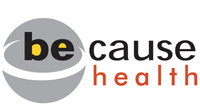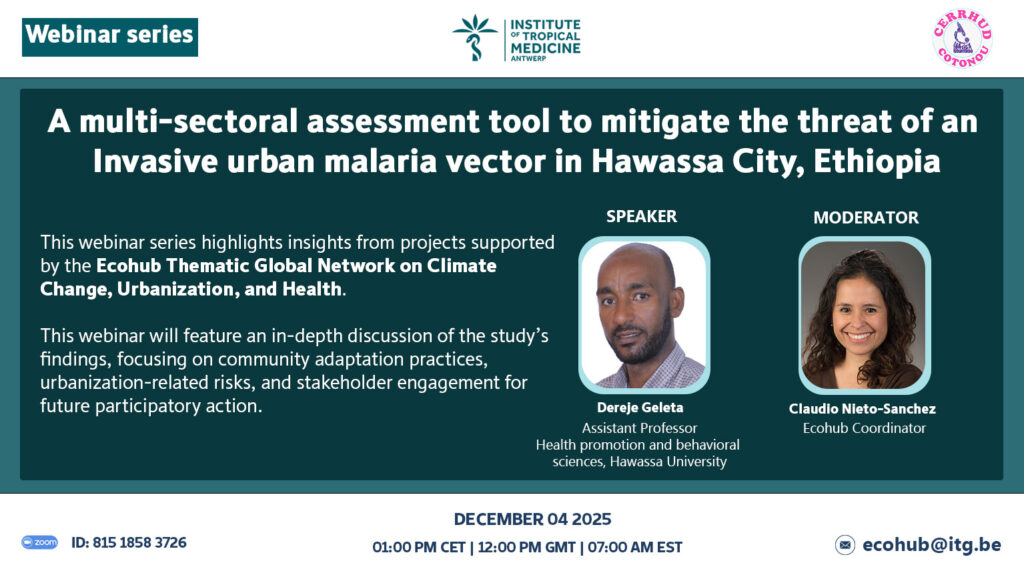December 04, 2025 – 01:00 pm CET | 12:00 pm GMT | 07:00 AM EST
This webinar series highlights insights from projects supported by the Ecohub Thematic Global Network on Climate Change, Urbanization, and Health.
This webinar will feature an in-depth discussion of the study’s findings, focusing on community adaptation practices, urbanization-related risks, and stakeholder engagement for future participatory action.
SPEAKER:
Dereje Geleta
Assistant Professor
Health promotion and behavioral sciences, Hawassa University
MODERATOR:
Claudio Nieto-Sanchez
Ecohub Coordinator
Registration link: https://itg.zoom.us/meeting/register/bGO0O9J1QWuCrbEAHMRpeQ#/registration
E-mail: ecohub@itg.be
In urban settings in Sub- Saharan Africa, malaria transmission is typically low in comparison to rural areas. However, urban planning measures are failing to accommodate the rapid population growth including the conditions that it creates to increase the breeding of vectors.
Recently, the presence of the invasive urban malaria vector-Anopheles stephensi- was reported in Hawassa City. The presence of the vector is alarming, as native African vectors typically breed in natural water bodies, found mainly in rural areas, where current vector control measures are well suited.
In Hawassa, the Anopheles Stephensi larvae were found in water tanks at construction sites, concrete water cisterns, and concrete water collection boxes for car washes. The presence of the vector and its co-existence with other native malaria vectors in a rapidly changing urban context suggests the need for multi-sectoral and integrated approaches for its control.
That’s why Dereje and Team develop this tool that can be applied in different contexts.
Join us to learn and contribute to this passionate debate.

